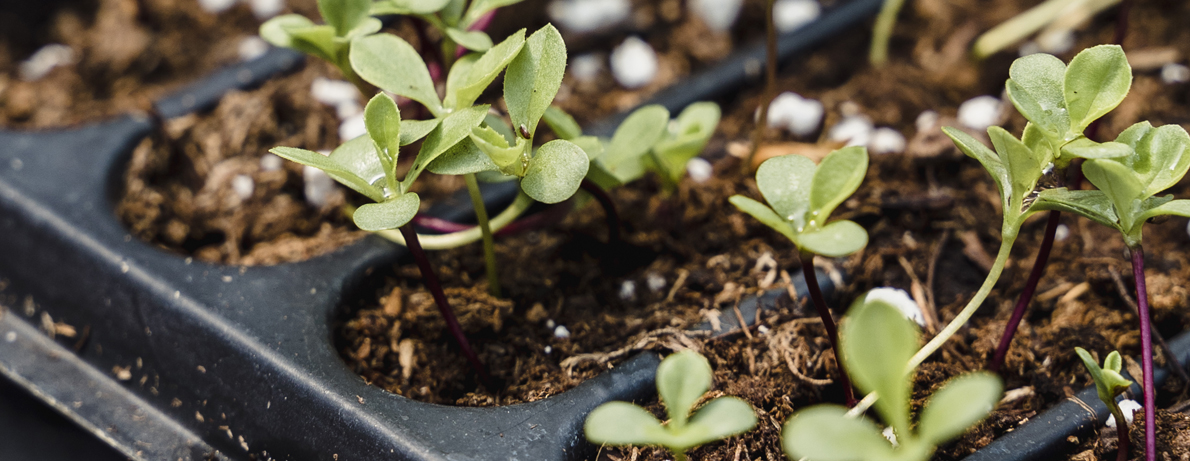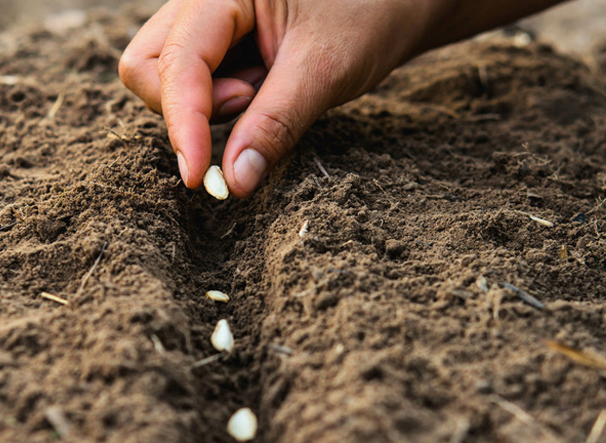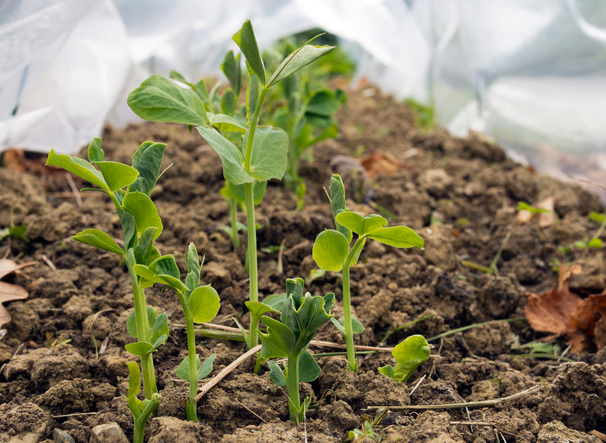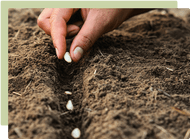Posted by Kelly Jean Reyland
6th Sep 2023
Growing from Seed: sowing in soil & containers

Choosing from the seed stands or a seed catalogue at a garden centre is a bit like a kid in the candy store. So many colours! So many choices! What to choose?! Not only do you have far more choice in varieties but sowing from seed is the best value for money by a landslide. You can get anywhere from 4 seeds to 200 seeds in a packet for $4-5. Seed sowing takes more time and more effort but the results are worth it! If you are keen to try successional planting, seed sowing can easily help you plan out your harvest. After you have made the decision on what varieties to plant, here at the key points you need to know about growing from seed.

Sowing in Soil:
- Some plants like carrots, parsnips, turnips, peas, and beans are best sown directly in the soil because they are root crops or don't like being disturbed.
- Ensure the soil is well-prepared, free-draining, and rich in compost for good seed germination.
- Create shallow channels for the seeds and fill them with seed raising mix to provide an ideal environment for germination.
- A rule of thumb is to plant the seeds at a depth of 2-3 times their thickness in the mix.
- Sow the seeds at the recommended spacing mentioned on the seed packet, cover them with soil, and gently firm the surface to ensure seed-to-soil contact.
- In colder regions or early in the season, you can use cloches to protect the seeds from bad weather conditions and cooler temperatures.
- Always label what you sowed and the date!
Sowing in Containers (trays, punnets, or pots):
- Use a high-quality seed raising mix, which provides good drainage while holding enough moisture for seed germination.
- If reusing containers, make sure they are thoroughly cleaned to prevent the spread of soil fungal diseases.
- You can either sow multiple seeds in each cell and thin them later or sow several seeds in a larger container and transplant them once they have 2 true leaves. (True leaves are the second set of leaves that appear)
- Plant the seeds at a depth of 2-3 times their thickness.
- Label what they are and when they were sowed
- Keep the mix consistently damp but not overly wet until germination is complete, which typically takes 1-3 weeks for most species.
- Covering with some glass, a polythene cloche, or even newspaper can help maintain moisture and temperature.
- Place the containers in a warm, sunny spot during winter/early spring or in a shaded area during summer.
- After germination, remove covers and provide adequate ventilation. Keep the young seedlings moist and ensure they receive sufficient light.
- After 2-3 weeks, the young seedlings will be ready for transplanting into the garden.
- If you have germinated and grown the seedlings inside, it’s important to harden them off before exposing them to the elements overnight. Do this by sitting them outside in a sunny spot during the day and bring them inside at night for about a week before putting them outside overnight. This will help their outside layer to toughen up.
Why aren’t my seeds germinating or what is wrong with them?

- Seeds not germinating or deformed seedlings can result from a number of things such as overly wet or dry conditions, extreme temperatures, wrong planting depth, soil issues, fungal diseases, pests like slugs and snails, and insufficient light.
- Make sure you read the back of the packet and follow the recommended planting guidelines and environmental conditions for each type of seed.
- Use fresh seeds. Open seed packets may have reduced germination rates, especially with certain plant varieties like lettuce, parsnips, celery, leeks, and onions.
Following these guidelines will help you start your garden from seeds successfully and navigate any issues that may occur during the germination process. It's all about giving them the right conditions, a little TLC, and they'll be growing
Shop our range of seeds, or quality products for seed raising & propagation.
By Kelly Jean Reyland of Garden Advice NZ (www.gardenadvice.co.nz)


























